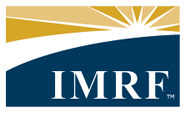1.14 Ethics Commission Charter
The Board of Trustees of the Illinois Municipal Retirement Fund has adopted this Ethics Commission ("Commission") Charter.
Purpose
The Commission is established to investigate, conduct hearings, deliberate, and issue recommendations to the Board of Trustees for disciplinary actions regarding violations of the IMRF Ethics Policy and Code of Conduct.
Authority
The Commission has authority to conduct or authorize investigations and conduct hearings into any matters regarding allegations of violations of the IMRF Ethics Policy and Code of Conduct. This authority is conferred on the Commission by IMRF Board Policy 2004-07-08 and Article 70 of the State Officials and Employees Ethics Act.
The Commission is empowered under this Charter to:
- Use outside consultants or others to advise or assist in the conduct of an investigation;
- Seek any information required from Fund employees--all of whom are directed to cooperate with the Commission’s requests--or external parties;
- Meet with Fund staff, consultants, outside counsel, and others as necessary.
Composition
The Commission will consist of three commissioners. One commissioner shall be the President of the Board of Trustees, one commissioner shall be the Vice-President of the Board of Trustees, and one commissioner shall be the IMRF Chief Audit Officer. The conflict substitute shall be the Board Secretary.
Meetings
The Commission will meet as required to review and act upon a written complaint of an Ethics Policy/Code of Conduct violation. All commission members are expected to attend each meeting, in person or via teleconference or videoconference. The Commission will determine whether others (staff, or consultants, for example) shall also attend its meetings.
If a hearing is held, both the respondent and the complainant shall be invited and given the opportunity to present testimony and evidence. The hearing shall be informal and the rules of evidence shall not apply.
Commission meetings will not be open to the public unless the respondent requests an Open Meeting. At the direction of the Commission, a staff member may prepare minutes for each meeting.
A complaint alleging a violation of the Ethics Policy must be filed with the Commission within one year after the alleged violation.
Responsibilities
The Commission shall have the following powers and duties:
To promulgate procedures and rules governing the performance of its duties and the exercise of its powers.
To investigate, conduct hearings, and issue recommendations for disciplinary actions regarding violations of the IMRF Ethics Policy and Code of Conduct. The Commission’s authority is limited to acting upon the receipt of a written complaint alleging a violation of that Policy. It may not begin an investigation without such a complaint.
To receive information from the public and from trustees and employees pertaining to its investigations and to require additional information and documents from persons who may have violated the provisions of the Policy.
It is the obligation of all trustees and employees of IMRF to cooperate with the Commission during the course of its investigations. Failure or refusal to cooperate with requests by the Commission shall constitute grounds for discipline or censure. Complaints alleging a violation of this Ethics Policy shall be filed with the Ethics Commission.
After receipt of a complaint, the Commission shall notify the respondent that a complaint has been filed against him or her and provide a copy of the complaint. The Commission shall also notify the complainant that the complaint was received. The notices to the respondent and the complainant shall also advise them of the date, time and place of the meeting to determine the sufficiency of the complaint and to establish whether probable cause exists to proceed.
The Commission shall meet to review the sufficiency of the complaint and, if the complaint is deemed sufficient to allege a violation of the Policy, to determine whether there is probable cause, based on the evidence presented by the complainant, to proceed. The Commission shall issue notice to the complainant and the respondent of the Commission’s ruling on the sufficiency of the complaint and, if necessary, on probable cause to proceed within 10 business days after receiving the complaint.
If the complaint is deemed sufficient to allege a violation of the Policy and there is a determination of probable cause, then the Commission’s notice to the parties shall include a hearing date scheduled within 45 business days after the complaint’s receipt. If the complaint is deemed not sufficient to allege a violation or if there is no determination of probable cause, then the Commission shall send a notice to the parties of the decision to dismiss the complaint.
On the scheduled date the Commission shall conduct a hearing on the complaint and shall allow both parties the opportunity to present testimony and evidence. Within 30 days after the date the hearing or any recessed hearing is concluded, the Commission shall either (i) dismiss the complaint or (ii) issue a recommendation for discipline to the Executive Director and the Board of Trustees. A copy of the recommendation shall be given to the alleged violator.

